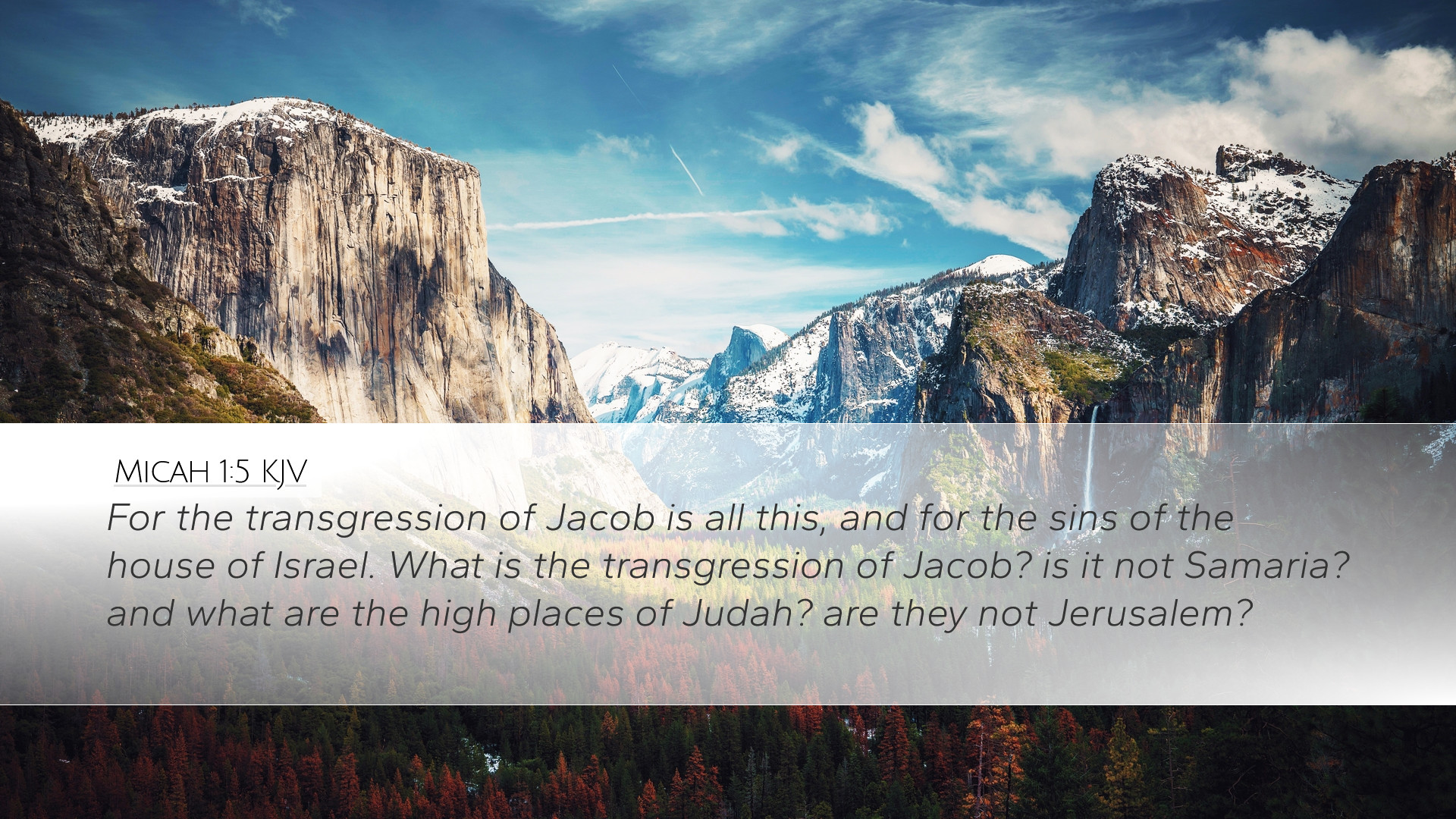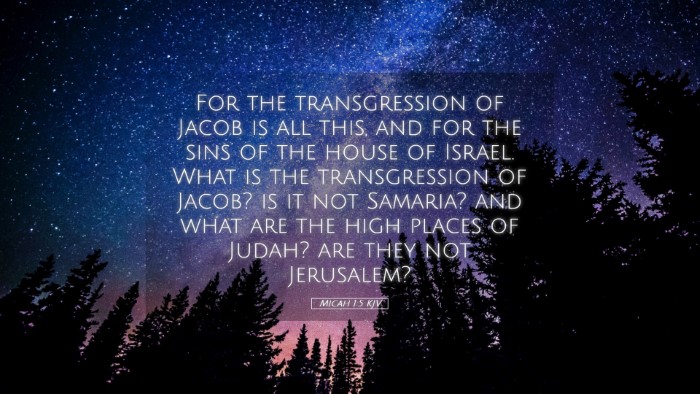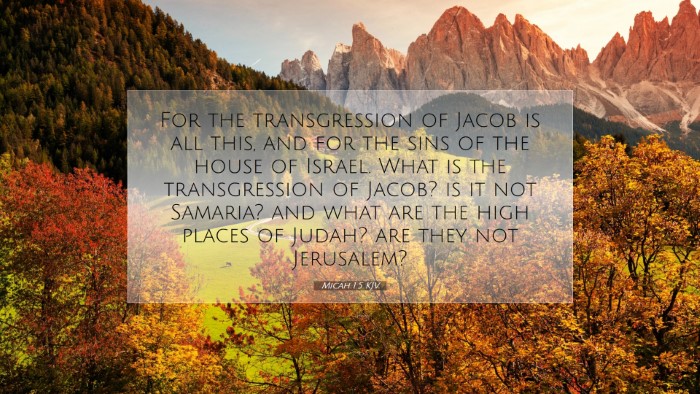Old Testament
Genesis Exodus Leviticus Numbers Deuteronomy Joshua Judges Ruth 1 Samuel 2 Samuel 1 Kings 2 Kings 1 Chronicles 2 Chronicles Ezra Nehemiah Esther Job Psalms Proverbs Ecclesiastes Song of Solomon Isaiah Jeremiah Lamentations Ezekiel Daniel Hosea Joel Amos Obadiah Jonah Micah Nahum Habakkuk Zephaniah Haggai Zechariah MalachiMicah 1:5
Micah 1:5 KJV
For the transgression of Jacob is all this, and for the sins of the house of Israel. What is the transgression of Jacob? is it not Samaria? and what are the high places of Judah? are they not Jerusalem?
Micah 1:5 Bible Commentary
Commentary on Micah 1:5
Verse: "For the transgression of Jacob is all this, and for the sins of the house of Israel. What is the transgression of Jacob? Is it not Samaria? and what are the high places of Judah? Are they not Jerusalem?"
Introduction
The verse Micah 1:5 presents a critical insight into the moral and spiritual failings of both the Northern and Southern kingdoms of Israel and Judah. In this commentary, we explore interpretations and applications drawn from public domain sources, providing a deep and meaningful understanding for pastors, students, theologians, and Bible scholars.
Contextual Analysis
- Historical Background: Micah prophesied during a tumultuous time when Israel faced impending judgment from the Assyrian Empire. The corrupt practices and idolatry rampant among the people necessitated divine warning.
- Geographical Significance: The mention of Samaria and Jerusalem emphasizes the locations associated with the worship practices that had deviated from true devotion to Yahweh.
Interpretative Insights
Micah’s question, "What is the transgression of Jacob?" suggests a probing examination of the roots of Israel's sins. Each referenced city, Samaria and Jerusalem, reflects the contradictions between the people’s chosen worship and the true worship of God.
Theological Themes
- Transgression as a Concept: This verse encapsulates the idea that sin is not merely individual acts but a collective failure of a nation—a theme echoed by Matthew Henry, who emphasizes that the transgressions of Jacob reflect broader societal failings.
- Idolatry in High Places: The "high places of Judah" represent the places of unauthorized worship. Albert Barnes notes that these sites served as symbols of the apostasy of the people, who preferred their traditions over God's instructions.
Commentary Excerpts
Matthew Henry: Henry highlights that the sins of the people led to their suffering, and Micah connects their transgressions directly to their societal structures. He argues that the political and spiritual decay of a nation is invariably linked, noting that they had traded the worship of God for the convenience of their idolatrous practices.
Albert Barnes: Barnes elucidates that Micah is reminding Israel that their spiritual adulteries have brought about judgment. He interprets "Samaria" and "Jerusalem" as manifestations of Israel's greater rebellion against God—showing that the places plagued by sin are also sites of their historical significance.
Adam Clarke: Clarke’s commentary points to the clarity with which Micah calls the nation to account. He argues that the question serves as an indictment against the leaders and citizens alike, who have tolerated sin within their midst.
Application for Today
The lessons drawn from Micah 1:5 extend beyond its historical context and into the hearts of modern believers. The spiritual state of a community reflects its collective relationship with God. It is a call for self-reflection among congregations to consider how modern 'high places'—be they cultural norms or personal idols—can deter true spiritual worship.
Conclusion
Micah 1:5 stands as a solemn reminder of the implications of corporate sin and the necessity of returning to genuine worship. The insights from Matthew Henry, Albert Barnes, and Adam Clarke illuminate the multifaceted nature of sin, offering a rich tapestry that encourages theological discussion. As leaders and scholars explore these themes, they are reminded of the importance of guiding their communities toward true holiness and fervent devotion to God.


